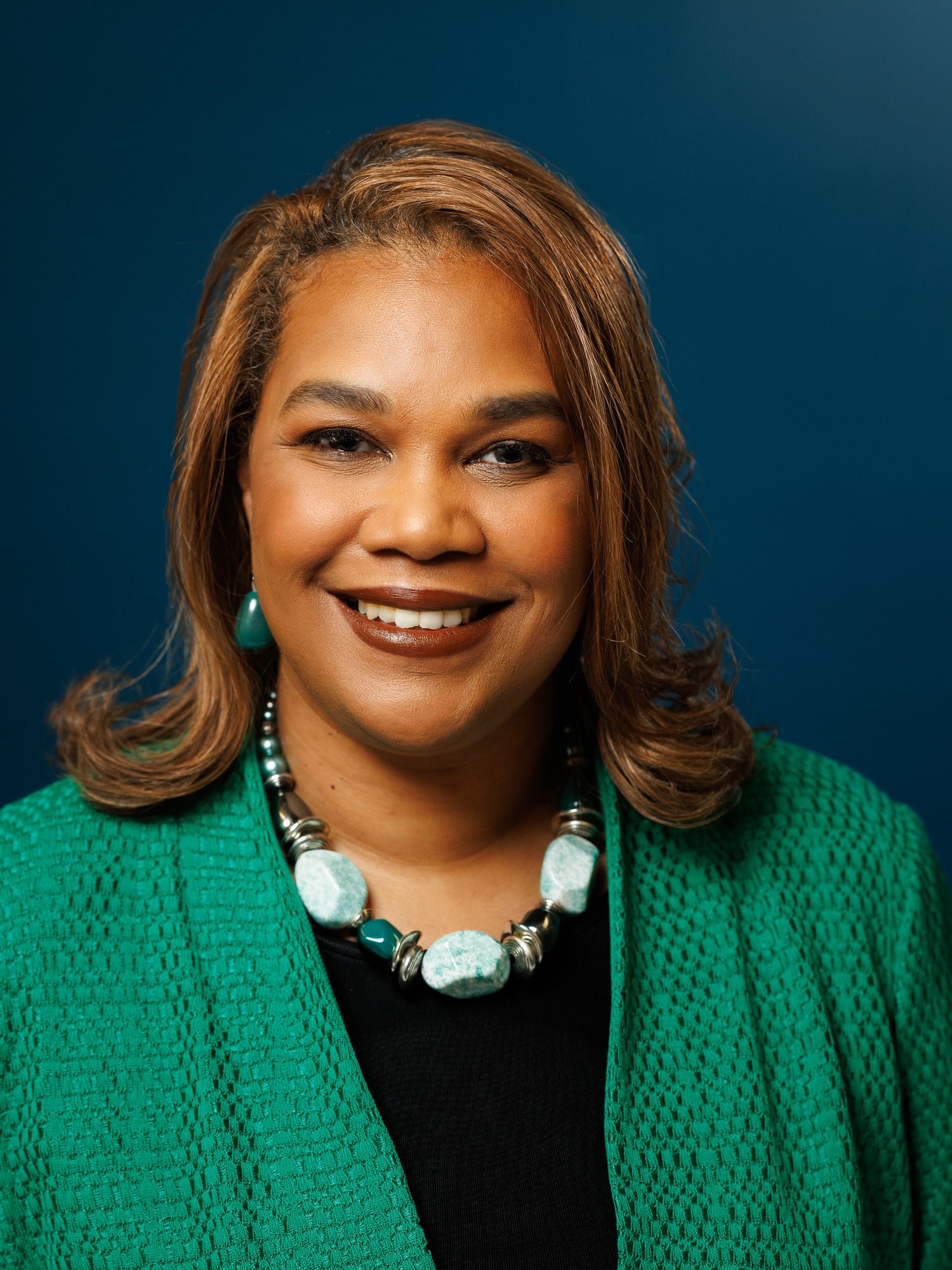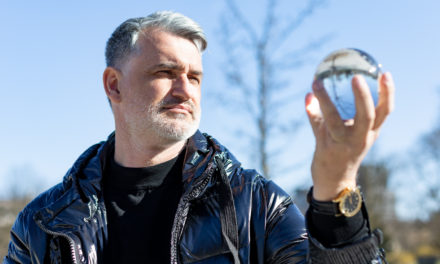Dr. Airica Steed is a trailblazer in the healthcare industry and an advocate for health equity. As the former CEO of MetroHealth in Cleveland, she made history as the first Black, woman, and nurse CEO of the organization. Her personal experiences with healthcare inequities fueled a career dedicated to systemic change, community advocacy, and patient-centered care. Throughout her impactful tenure, Dr. Steed implemented innovative programs addressing healthcare disparities, championed community-based mental health care, and emphasized culturally competent practices. Today, she continues to be a passionate voice for sustainable health equity and remains committed to transforming healthcare for underserved communities nationwide.
Your leadership at MetroHealth focused heavily on health equity. How did your personal experiences shape this mission, and how did they influence the initiatives you implemented during your tenure?
My commitment to health equity is deeply personal. Growing up, I directly witnessed how systemic disparities can impact medical outcomes and access to care. My family experienced these gaps in the most heartbreaking ways—from misdiagnoses to uncommunicated treatment risks. The loss of my mother to a rare cancer, coupled with complications in my own pregnancies—things statistically more likely to affect Black women—left an indelible mark on me. These experiences became the foundation for my professional mission.
During my time at MetroHealth, I drew on these lessons, leading initiatives like expanding the Institute for H.O.P.E.™ and introducing culturally competent care practices. My goal was to ensure that no one else had to face a healthcare system that wasn’t built for them. Additionally, I want to emphasize that my leadership at Sinai Chicago, where I became the first Black female to be appointed as System COO & President of the flagship hospital, is another example of my dedication to trailblazing in healthcare. This role also highlights my track record of being a trailblazer in positions that have not historically been open to women or people of color.
Cleveland historically faced significant healthcare disparities, especially within underserved communities. Can you share some of the most impactful programs or changes you led at MetroHealth to address these issues?
Dr. Steed: Cleveland’s healthcare challenges are staggering, but they also offered an opportunity to make meaningful change. One of the most impactful programs we developed was the Institute for H.O.P.E.™ (Health Opportunity Partnership Empowerment), which focused on addressing social determinants of health like housing, food security, and education. We partnered with local organizations to amplify our reach and tackle root causes. Another significant effort was reducing infant mortality rates among Black babies. We implemented targeted maternal health programs to support Black mothers, providing resources such as prenatal education and postnatal care. These programs extended care beyond the walls of the hospital, meeting people where they lived and creating lasting impact.
It’s also worth noting that my leadership at MetroHealth was historic in its own right. I was the first female, first Black person, and first nurse in nearly 200 years to serve as CEO, and that fact cannot be overlooked. Each of these “firsts” is significant in its own right, and together they have forever changed the trajectory of the organization. It’s a legacy that will remain in the history books, and I am proud to have made a lasting impact.
Your advocacy for community-based mental health care is inspiring. What do you see as the most significant barriers to implementing such systems, and how can they be overcome?
One of the biggest barriers is the reactive nature of our current mental healthcare system. Too often, individuals in crisis encounter law enforcement rather than compassionate care. Another obstacle is the stigma surrounding mental health in many communities, which prevents people from seeking help. To overcome these challenges, a shift toward proactive, community-centered care is critical. This means providing culturally competent care and training community health workers who are embedded in and trusted by the communities they serve. We need to make mental health resources accessible and normalize seeking help by incorporating mental health discussions into primary care.
During your career, you’ve broken barriers as the first Black, woman, and nurse CEO at MetroHealth. What challenges did you face in these roles, and how did you remain focused on driving systemic change?
Navigating leadership as the first Black, woman, and nurse CEO had its challenges, from external skepticism to systemic biases within the industry. But I saw these challenges as opportunities to push boundaries and create space for others. What kept me focused was my unwavering belief in the mission—fighting for health equity, uplifting marginalized voices, and ensuring access to quality care for all. My nursing background also played a key role in shaping my perspective. Empathy and resilience became my guideposts. Rather than focus on the obstacles, I concentrated on building collaborative partnerships and empowering others at MetroHealth to work toward systemic change.
However, it’s important to note that these were three separate firsts — not just one bundled achievement. I was the first Black person, the first woman, and the first nurse to serve as CEO at MetroHealth in nearly 200 years. Each of these milestones was monumental in its own right and is a part of the lasting legacy I’ve left behind, one that will forever be in the history books.
You’ve emphasized the importance of culturally competent care. What advice would you give to healthcare institutions looking to embed this principle into their operations?
Dr. Steed: Embedding cultural competence into healthcare requires intentionality and commitment across all levels of an organization. Start by educating your teams—offer training on implicit bias, cultural awareness, and inclusive care practices. Then, ensure that your services are truly reflective of the communities you serve. This might mean offering multilingual resources, hiring a diverse workforce, or adapting care models to accommodate traditional healing practices. It’s also critical to create an environment where patients feel seen and heard. Encourage feedback from patients and community leaders to continually adapt and improve. Most importantly, integrate cultural competency into the core values of your institution, so it becomes a part of your organization’s DNA.
Looking beyond your time as CEO, what are your current priorities in the fight for sustainable health equity, and where do you believe the healthcare system requires the most urgent attention?
My current work focuses on tackling two pressing issues—mental health inequities and addressing social determinants of health at scale. I’m particularly passionate about breaking the cycle of mental health crisis and incarceration that affects underserved communities. It’s crucial to create preventive, community-based care systems that remove barriers and build trust.
In addition to mental health, I am deeply focused on maternal and infant health. The statistics on maternal and infant mortality — particularly among Black women — remain staggering, and I am determined to continue advocating for change both nationally and internationally. This is an area where I have the opportunity to push for policy change, improve care, and give voice to those who are often unheard.
What do you envision as the long-term impact of your work on future generations, especially within marginalized and underserved communities?
The legacy I hope to leave is one of transformation. I want to ensure that future generations, regardless of their background, can access a healthcare system rooted in fairness, equity, and compassion. For marginalized communities, this means not only addressing health disparities but breaking cycles of poverty and creating pathways to success. I hope that the work I’ve done—and continue to do—serves as a foundation for a system that prioritizes humanity and dignity.
My work will be a catalyst for a healthcare system that is equitable, not just in theory but in practice. I envision a world where healthcare is a right, not a privilege, and where every individual, no matter their circumstances, can thrive. This is the lasting impact I hope to achieve — one that continues beyond my career and influences generations to come.




